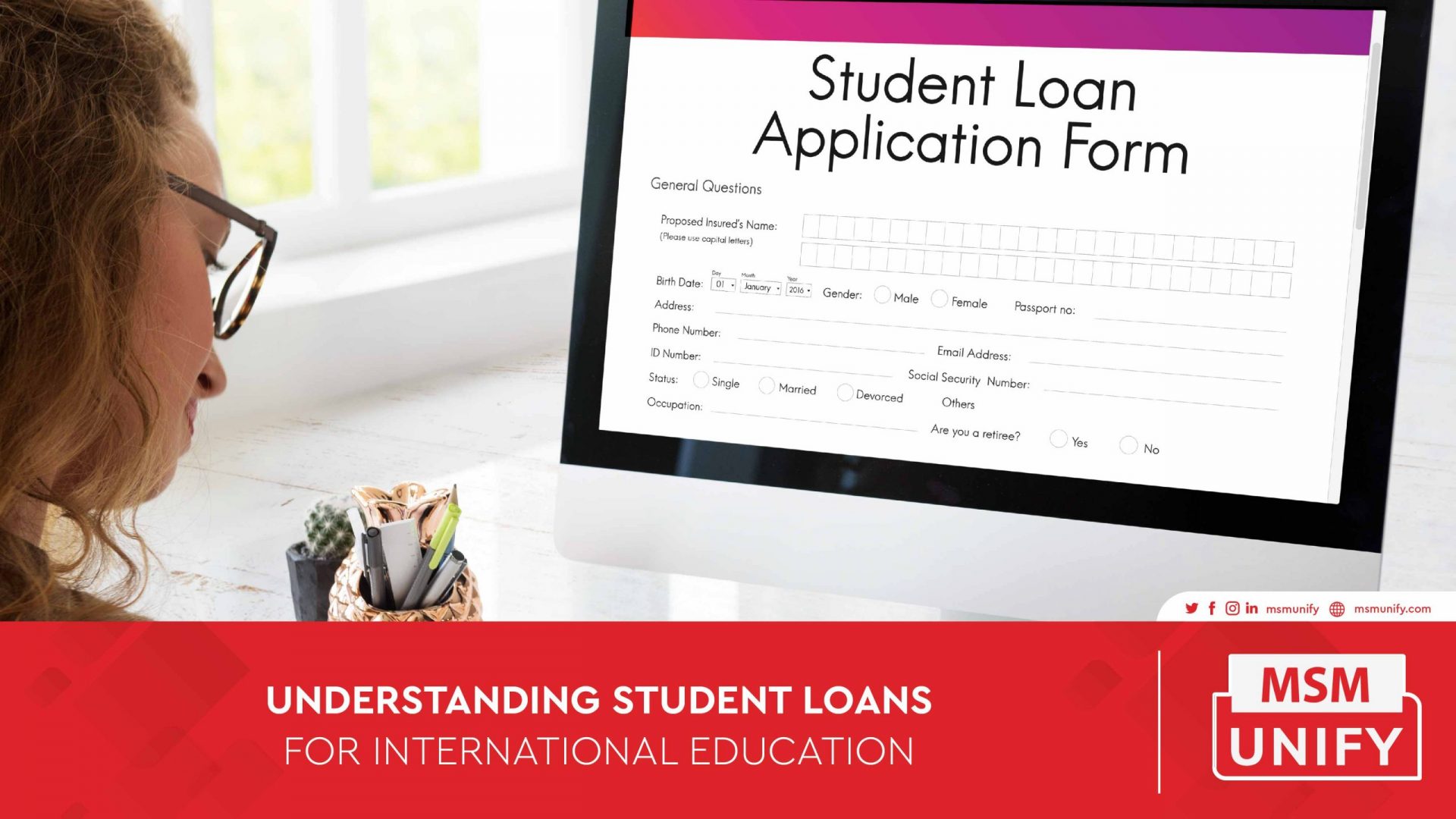As globalization continues to shrink the world, the desire for international education has never been greater. Unfortunately, for many aspiring learners, financial constraints are roadblocks to pursue global education. This is where student loans for overseas education come into play.
A student loan for studying abroad offers the golden key to unlocking the door to overseas education. Having financial support, these loans empower students to overcome economic barriers and chase their dreams at world-renowned universities and colleges. This article will delve into the world of international student loans, highlighting their benefits.
Understanding student loans for studying abroad
At its core, a student loan for studying abroad is a specially designed financial product that provides funding for students who wish to pursue higher education abroad. It covers expenses such as tuition fees, living costs, travel, books, and others. Lenders including banks and non-banking financial companies (NBFCs) offer these loans based on specific eligibility criteria.
Securing a student loan for studying abroad opens up windows of opportunities. It allows students to gain a quality education and eventually build an impressive portfolio that sets them apart in today’s competitive job market. These loans usually have flexible repayment options, enabling students to repay the loan once they are gainfully employed.
The challenges of securing a student loan for studying abroad
Like any financial product, a student loan for studying abroad comes with both benefits and drawbacks. The key is to balance the pros and cons effectively.
Perks
Quality education
With a student loan, students can gain access to quality education and research facilities at globally recognized institutions.
Career advancement
Graduates from overseas institutions often have a competitive edge in the job market, given the global exposure and the prestige associated with foreign degrees.
Cultural exchange
Studying abroad allows students to experience new cultures, languages, and lifestyles, fostering personal growth and a global outlook.
Challenges
High interest rates
Student loans for studying abroad often come with higher interest rates compared to domestic education loans.
Exchange rate risks
If your home currency devalues, your loan repayments can become significantly more expensive.
Loan repayment pressure
Paying off the loan can become a financial burden if you can’t secure the job immediately after graduation.
Finding the right student loan for studying abroad
The process of securing the best student loan for studying abroad can be daunting, given the multitude of available options. Here are some steps to help you navigate this journey:
Research
Explore various loan options available both from banks and NBFCs. Look for competitive interest rates, flexible repayment options, and the maximum loan amount offered.
Understand the terms
Thoroughly understand the terms and conditions of the loan including repayment schedules, interest rates, and hidden charges, if any.
Compare
Use online platforms to compare different loans and choose the one that best fits your needs and financial situation.
Components of a student loan for studying abroad
A student loan for studying abroad usually covers the following costs:
Tuition fees
This is the most substantial part of your study abroad expense, and lenders generally cover the full cost.
Living expenses
Many lenders include the cost of living in the host country in their loan amount, which can include accommodation, meals, and local transportation.
Travel expenses
Some lenders also cover the cost of airfare to and from the student’s home country.
Books and supplies
The cost of textbooks, lab equipment, or any other necessary study materials is often included in the loan.
Health insurance
If the host country requires international students to have health insurance, your student loan can also cover this.
Criteria for eligibility
Understanding the eligibility criteria for a student loan for studying abroad is crucial. Most lenders look at the following factors:
Academic performance
Lenders often require proof of the student’s academic abilities, such as transcripts or test scores.
Admission confirmation
A confirmed admission letter from the overseas university is typically needed before the loan is sanctioned.
Credit score and history
Lenders may check the credit history of the student or the parents/guardian (whoever is repaying the loan).
Income proof
Proof of stable income of the parents/guardian is often required to ensure the ability to repay the loan.
Securing a co-signer
Usually, students require a co-signer to avail of a student loan for studying abroad. A co-signer, usually a parent or guardian, agrees to repay the loan if the student is unable to. A co-signer with a good credit history can also help secure better loan terms.
Impact on credit score
Remember that a student loan for studying abroad, like other types of loans, will impact your credit score. Timely loan repayment can help build a strong credit history. However, late or missed payments can negatively affect your credit score.
Consider scholarships and grants
While exploring student loans for studying abroad, it’s worth considering scholarships and grants that reduce the amount you need to borrow. Numerous universities, government organizations, and private institutions offer scholarships for international students.
Key takeaways
International education is a sought-after experience, and a student loan for studying abroad can help make this dream a reality. While the path may seem challenging, with the right approach, you can secure a loan that enables you to embark on your global education journey. Start exploring your options today and take a step closer to realizing your dream of studying abroad.












